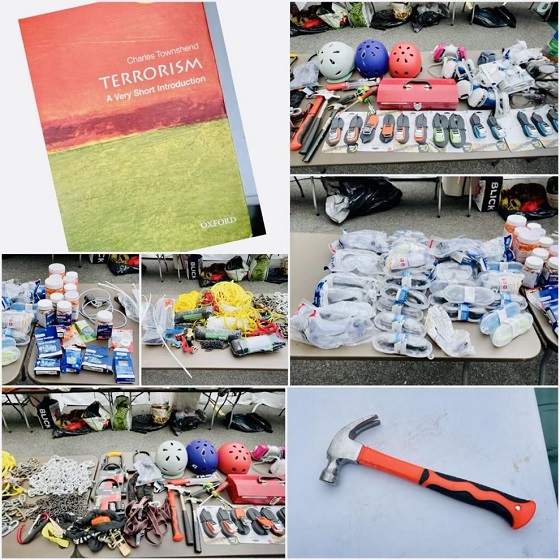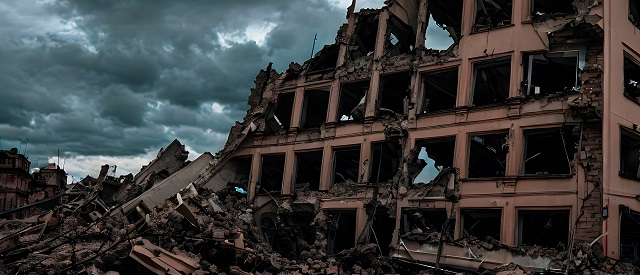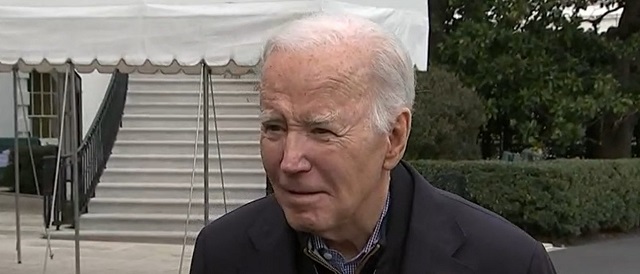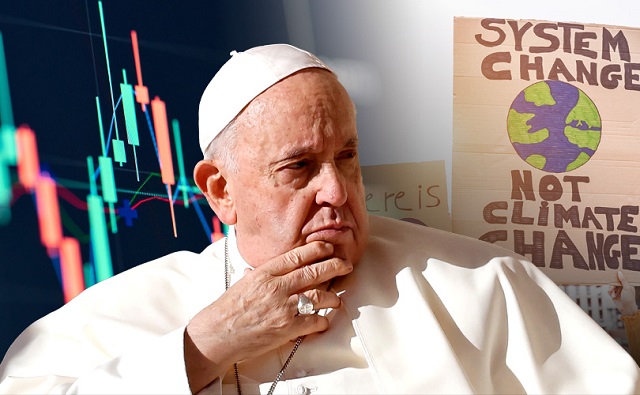By JAKE SMITH
The Biden administration’s claim that an Israeli invasion into Rafah would not help the nation defeat Hamas or secure a hostage release deal “makes no logical sense,” several experts told the Daily Caller News Foundation.
White House national security spokesman John Kirby said on Thursday that Israel cannot achieve a “sustainable and enduring defeat” against Hamas by invading Rafah, also claiming that it could jeopardize ongoing negotiations to free the hostages in Gaza. Experts told the DCNF that the claim doesn’t hold water as a military operation is the only way to pressure Hamas into reaching a hostage deal and eventually achieve victory over the terror group.
“An enduring defeat of Hamas certainly remains the Israeli goal, and we share that goal with them,” Kirby said. “Smashing into Rafah, in [Biden’s] view, will not advance that objective, will not get to that sustainable and enduring defeat of Hamas.”
Two high-level defense experts and a former senior U.S. official told the DCNF that Kirby is mistaken and that the only way to ensure Hamas is defeated is through military operations.
“Kirby is wrong,” Mark Dubowitz, CEO of the Foundation for Defense of Democracies (FDD), a Washington-based defense think tank, told the DCNF. “Only the Israel Defense Force’s (IDF) patient, well-planned and well-executed operation has been successful in smashing Hamas and releasing hostages, to date.”
“You can’t defeat Hamas with good vibes and nice words. You defeat them on the battlefield through munitions, through kinetic action,” Executive Director of Polaris National Security and former State Department official Gabriel Noronha told the DCNF.
Kirby and State Department spokesperson Matthew Miller have said that the administration believes if Israel chooses to push into Rafah, it will weaken their hand in negotiations to secure a deal to release the hostages currently held in Hamas captivity. Israel has been negotiating with Hamas through international meditators, including the U.S., for months to reach a deal that would see a temporary ceasefire in the Gaza region in exchange for their release.
“We actually think that a Rafah operation would weaken Israel’s position, both in these talks and writ large,” Miller said on May 9.
“If I’m Mr. Sinwar, and I’m sitting down in my tunnel … and I’m seeing innocent people falling victim to major significant combat operations in Rafah, then I have less of an incentive to want to come to the negotiating table,” Kirby told reporters, referring to Yahya Sinwar, the leader of the military branch of Hamas.
Hamas is unlikely to be more inclined to move the hostage deal along if Israel doesn’t invade Rafah as the terrorist group isn’t concerned with the wellbeing of Palestinians in the region, experts told the DCNF. The IDF has accused the terrorist group of using civilians as human shields and embedding itself within population centers.
“It’s preposterous. It stands in the face of all the evidence we’ve actually seen in this conversation,” Noronha told the DCNF. “There’s been nothing that the White House has released that makes room for any kind of justification for what they’re claiming from the podium.”
The lack of military pressure from Israel would make Hamas less incentivized to reach a hostage and ceasefire deal, Shoshana Bryen, defense analyst and senior director of The Jewish Policy Center, told the DCNF. Hamas agreed to one ceasefire deal in November after coming under intense stress from Israeli forces, but the deal quickly fell apart in December.
“The only serious negotiating Hamas did was in the very early days when Israel’s fury was evident and accepted by most of the world,” Byren told the DCNF. “Hamas leadership saw that it might be defeated on the battlefield, so it permitted a ceasefire and released hostages. Since that time, the Biden administration has worked to constrain Israel — up to and including the withholding of arms approved by Congress.”
“Hamas isn’t stupid. As long as the Biden administration works to constrain Israel, Hamas doesn’t have to give anything,” Byren said.
Experts who spoke to the DCNF also took issue with Kirby claiming that Israel does not need to push into Rafah because Hamas has largely been crippled by Israeli forces since Oct. 7.
“It’s like saying, ‘Oh, we did chemotherapy for a month. We got 80% of the cancer, we’re good to go. We’ll just leave now.’ Again, it makes no sense,” Noronha told the DCNF.
“When someone announces that they want to kill you, they train to kill you, they arm to kill you, they teach their children that if the adults don’t finish the job in this generation, the children are expected to do it in the next generation,” Bryen told the DCNF. “When they say, ‘100 October 7s,’ they’re not kidding.”
Israeli forces seized control of the Rafah crossing bordering Egypt on Tuesday, saying that it was a vital chokepoint to stop the flow of weapons into Gaza, according to The Wall Street Journal. The IDF is moving further into the eastern corridors of Rafah, but has not yet gone into Rafah city, where the bulk of the more than one million refugees are located, according to The Associated Press.
Biden said during a CNN interview on Wednesday that the administration has not seen Israel cross a line in Rafah, but warned of consequences, including halting military aid, if Israel launches a full-scale invasion.
“If Israel had listened to the White House [since the war began], 18 Hamas terrorist battalions would still be standing, dozens of senior Hamas terrorist leaders would still be alive directing terror operations, dozens of Israeli and foreign hostages would still be languishing in the helm of Hamas captivity and Hamas would still be in charge planning the next October 7,” Dubowitz told the DCNF. “The Biden administration’s pressure on Israel has only prolonged the war and the suffering on both sides.”
Related

















